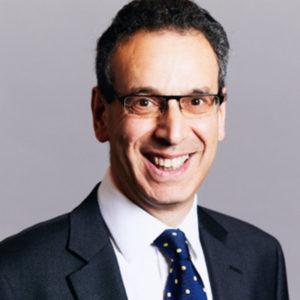Business Strategy
Summer Speaker Event and Members’ Reception
Strategic and Commercial Thinking with George Feiger
In-Person Only Meeting at 10-11 Carlton House Terrace, St James’s, London SW1Y 5AH
4:00pm – 5:30pm Speaker Event
5:30pm – 8:00pm Summer Reception
Professor George Feiger, former Pro-Vice-Chancellor and Executive Dean of Aston Business School will discuss two core aspects that underpin the development of business strategy: the strategic clarity that enables a business to create net positive value; and the commercial thinking that examines all business decisions in the context of their impact on profitability, (i.e., ‘revenue is vanity, profit is sanity’).
This is set within the context that all businesses operate within a legal, regulatory, and social framework. The former two grant a formal, the latter an informal licence to exist and operate. The heightened scrutiny of business in the 2020s means that, increasingly, any successful business strategy (or commercially shrewd action) must be ‘socially responsible’ as well as legally compliant – and be seen to be so.
The creation of ‘Value’ is a calculation that takes into account what might happen to revenues and costs over time. So, the arithmetic must be believable, and the strategy has to begin with a ‘concrete aspiration’ – against which George asks two questions:
- How plausible is this aspiration as a business idea? (I.e., based on a clear understanding of the market)
- How plausible is it that we can get there from here? (Does your organisation have the necessary capabilities and culture to implement the ‘idea’ successfully?)
‘Commercial’ thinking guides all continuous improvement process management. This implies looking at each step in the overall process – and asking if there is a cheaper/faster/higher quality way. A truly commercial benefit is one that makes the entire process more profitable, not just some part less costly or more revenue-positive. George will examine the pitfalls of ‘narrow’ commercial thinking.
In this session, George will give us his detailed insights on the process for developing business strategy, based on his academic research and his many years of experience in investment banking and wealth management. Using examples from a wide range of industries, he will outline how this framework for developing an organisational business model is supported by a rigorous understanding of both strategic and commercial thinking. Meeting Chair, Peter Blausten, will help us to draw out the implications (and possible actions) for HR and Reward professionals arising from the key themes presented by George, whilst bringing his own perspectives and insight.
Speakers

Peter Blausten
Independent Senior Advisor
Peter Blausten is an independent Senior Advisor, supporting public and private sector organisations. He is a former consulting partner of Alvarez & Marsal LLP working with corporate and private equity clients. He was Group HR Director of BAA plc, the FTSE 30 international airports group, and Morgan Crucible, the FTSE 250 international advanced materials company. He has also worked as a consultant to private equity firms on major M&A and performance improvement assignments. His earlier HR career was in senior HR roles with Charles Schwab & Co, British Airways and Ford Motor Company. In the public sector, he was a member of the Civil Service Commission Board, and Commissioner for the Cabinet Office, and has a non-Executive board role with the House of Commons Independent Standards Authority. Other non-Executive roles have included Oakburn Properties plc, English Heritage, City University, and the IES. He is an Associate Director of the Corporate Research Forum.

Prof. George Feiger
Executive Dean of Aston Business School
George Feiger has been Executive Dean of Aston Business School since 2013. Previously he founded a wealth management firm; was Director of McKinsey in the US & UK; Global Head of Investment Banking for Warburg; Global Head of Onshore Private Banking for Swiss Bank and UBS; and involved in various venture capital activities. He was Lecturer of Economics at Harvard; and Associate Professor of Finance at the Stanford Graduate School of Business. He has a PhD in Economics from Harvard.


